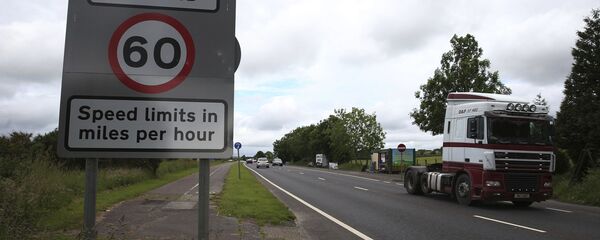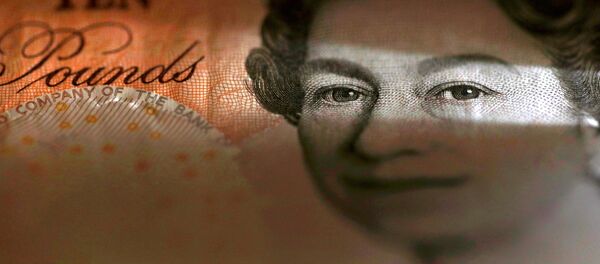Kristian Rouz – The UK’s economic growth was the slowest among the G7 in Q2 as the Brexit headwinds and sluggish exports failed to boost further expansion in domestic manufacturing and financial services. Led by consumer demand defying the rising inflation, the British economy is likely on track to sustainable, yet slower, expansion, but further developments will depend on the progress in the Brexit talks with the EU.
The British economy expanded by 0.3 percent quarter-on-quarter in the three months through June, up from 0.2 percent in the first three months of the year. Annualised growth was 1.7 percent, which is still quite robust given the unprecedented downward pressure related to the lingering Brexit concerns.
Despite the political standoff in the UK parliament over the approach to Brexit negotiations with the EU, and the bloc’s apparently united position over the issue, Britain has a competitive edge economically – which is also reflected by the trade numbers for the past few months.
However, an economic readjustment toward an export-reliant model of growth is hurting domestic consumption and spurs inflation in the near-term, whilst any positive effects are delayed.
“Sterling’s depreciation has hurt consumers, by fuelling inflation, more than it has helped exporters,” Samuel Tombs of Pantheon Macroeconomics says.
The British goods exporters – primarily, in the manufacturing sector – have indeed reaped the benefits of the pound’s devaluation in the Brexit vote’s aftermath. Yet, the UK’s exports are a mix of goods and services, with a significant disproportion towards the latter, and exports in services are less dependent on the national currency’s FX rate’s movements.
Over the next five years, foreign trade will be adding only 0.2 percent to economic expansion, a report from HM Treasury says.
“When the UK left the European exchange rate mechanism in 1992, sterling’s decline may have provided some support but the greater benefit came from much lower interest rates, not a much weaker exchange rate,” Stephen King of HSBC says. “Given where interest rates are today, there’s no chance of a repeat performance.”
The Bank of England’s (BoE) base borrowing costs are at their unprecedented lowest, at 0.25 percent, and further cuts would be very difficult, as inflation is far above the BoE-targeted 2 percent. A way to avoid the slow-growth trap would be normalizing interest rates in order to curb inflation, whilst providing fiscal stimulus to the economy in the form of tax cuts and higher budget spending.
However, until the Brexit negotiations with the EU are through, any significant economic policy measures in the UK are unlikely. The main reason is the uncertainty over the actual Brexit path – whilst a ‘hard Brexit’ would require a certain type of policy response, a ‘soft Brexit’ would motivate a different set of measures.
"Recent consumer spending has been buoyed by credit and PPI (payment protection insurance) payments. Both sources are drying up year-on-year, and we are seeing a progressive softening of demand, while cost growth is materially outpacing sales growth. Things must get worse before they can get better," Richard Hyman, an independent retail, and an economic analyst said.
The still-sustainable pace of economic expansion was made possible by the gradual shift in foreign trade patterns, which provide a brighter prospect for UK growth. Theresa May’s cabinet might be able to strike tariff-free trade deals outside of the EU, and this is something many UK business-owners are looking forward to.
"This process (Brexit) is unlikely to have adverse effects on the UK economy, as companies will be able to switch to suppliers representing the 93 percent of the world’s population which is not in the EU, but this evolution will eventually be highly damaging to the economy of the EU," Tim Martin, chairman of Britain’s largest pub network, said.
Whilst the Brexit talks are underway, and the negotiators have achieved little progress, the pace of economic growth on both sides of the English Channel will be subdued. The question is what the policy response will be when the deal is finally reached.





